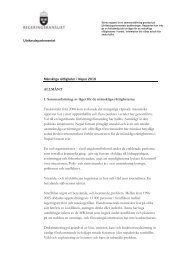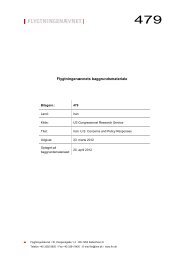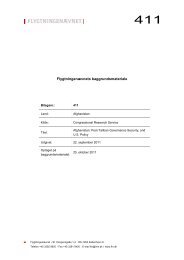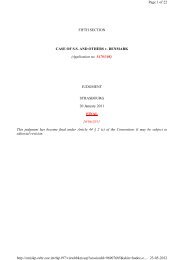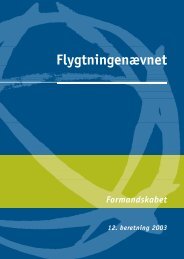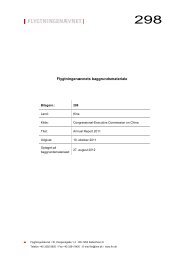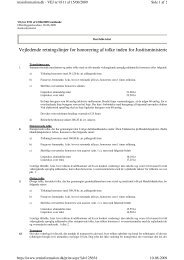Annual Report - National Human Rights Commission
Annual Report - National Human Rights Commission
Annual Report - National Human Rights Commission
You also want an ePaper? Increase the reach of your titles
YUMPU automatically turns print PDFs into web optimized ePapers that Google loves.
Annexure 12<br />
○ ○ ○ ○ ○ ○ ○ ○ ○ ○ ○ ○ ○ ○ ○ ○ ○ ○ ○ ○ ○ ○ ○ ○ ○ ○ ○ ○ ○ ○ ○ ○ ○ ○ ○ ○ ○ ○ ○ ○ ○ ○ ○ ○ ○ ○ ○ ○ ○ ○ ○ ○ ○ ○ ○ ○ ○ ○ ○ ○ ○<br />
○<br />
Development, Ministry of Information and Broadcasting, Ministry of Surface Transport,<br />
Department of Education and other agencies like CBI, RPF, state police, GRP, NCRB, as<br />
well as Children’s Networks, Child India Foundation (CIF) and other voluntary agencies<br />
in the field.<br />
Efforts need to be made to ensure that children do not go missing. Proper registration of birth,<br />
appropriate identity systems for individuals even at the infant stage, and involving community in<br />
not only reporting about the missing persons but also in carrying out verifications and recovery<br />
of the missing children, are essential. PRIs have an important role in this regard.<br />
Contingency Expenditure<br />
It has come to light that in many states, police officials face acute shortage of communication<br />
facilities and other infrastructure, especially in police stations. A Delhi case study has shown<br />
how, when a rescue operation was carried out, the police station did not have adequate resources<br />
even for extending minimum facilities to the rescued victims. When this was brought to the<br />
notice of the High Court of Delhi, the court ordered the Government of India (DWCD) to<br />
provide a contingency grant to the <strong>Commission</strong>er of Police, Delhi. This was fully utilized by the<br />
latter. Governments have to earmark adequate resources for the concerned police agencies for<br />
meeting such contingencies.<br />
Training<br />
The study presents serious gaps with respect to the training of police officials. Only 17 per cent<br />
of the 852 police officials who were interviewed had received any refresher training after their<br />
basic training which they received during induction into the service. Only 6.6 per cent of them<br />
had been exposed to some training relating to anti-trafficking. The police, being a professional<br />
organization, cannot deliver the goods without appropriate and regular training courses for<br />
upgradation of their skills and knowledge, and orientation of attitudes. Perhaps lack of training<br />
is one of the major causes for the negative image of the police. The government should take<br />
initiative in earmarking adequate budget for the same and ensure timely training and<br />
professionalisation of police officials. This neglected area deserves utmost attention by all<br />
concerned.<br />
Gender sensitization of the law enforcement officials is an urgent requirement in the given<br />
context. The sensitization process, oriented towards bringing in accountability, should cover<br />
all officials of all ranks, from top to bottom. This should be done across the board and should<br />
extend to state police, CBI, Railway Police, RPF, immigration officials, as well as those officials<br />
who are concerned with the issue and are working with BSF, SSB, customs, health department,<br />
NACO, etc.<br />
Appropriate training modules need to be prepared by involving professionals and experts in the<br />
field. These modules should incorporate the principles of human rights of women and children,<br />
<strong>National</strong> <strong>Human</strong> <strong>Rights</strong> <strong>Commission</strong> <strong>Annual</strong> <strong>Report</strong> - 2004-2005<br />
291<br />
AR-Chapter-1-19-10-6-06.p65<br />
311<br />
7/17/06, 6:31 PM



